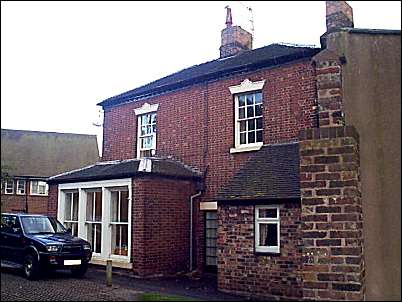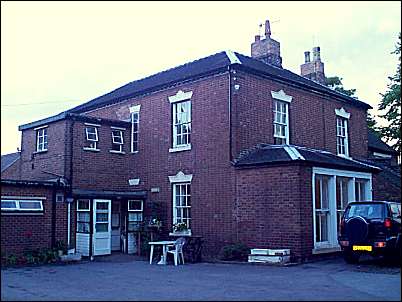Josiah Spode II (1754-1827) and The Mount Estate (Penkhull)
Beech Grove, Penkhull - Home of John Harrison
Location 11 on
the index map
As we walk to the end of Doncaster Lane, where it joins St. Thomas Place (previously Victoria Place) we find The Beech's nursing home.
Beech Grove house was built in 1792 for John Harrison.
The house was bought by Joseph Booth, pottery manufacturer at Cliff Bank in 1802.
It was advertised to let in 1838: "To be let, The Grove House, situate at Penkhull, now held by the Rev William Ford. The House contains an entrance hall, dining-room, drawing-room, study, and sitting-room, two kitchens, pantry, two cellars, 8 bedrooms, brewhouse, large garden, and pleasure ground, and pump of good water. The house is quite dry and in good repair. Stable for two horses, with a loft over, and a gig house may be had if wanted."
The house was leased by Thomas Bailey Rose, the stipendiary magistrate for the Potteries.
Because of the occupation by Rose the house was attacked and many of the contents burned during the Chartist riots in August 1842.
The 1832 map on the introduction page and the 1877 Ordnance Survey map both show the location of Beech Grove with the village of Penkhull.

In spite of the many additions and alterations the original Georgian house can clearly be seen in these two photographs.

Beech Grove house was built in 1792 for John Harrison
Ward ("The borough of Stoke-on-Trent")
Early in the month of July, 1842, a dispute arose between Mr. Sparrow, a principal iron and coal-master of Longton, and his workmen, on account of a reduction he required in their wages...... On Monday the 15th, after some inflammatory sermons by Cooper (a talented Chartist orator from Leicester)...... the Chartist Meetings had ..... proceeded thence to stop the engines at Earl Granville's works, broke open the Police Office at Hanley.... The rectory-house at the latter place was the especial object of their fury; it was gutted and set fire to, though the fire was extinguished before it destroyed the premises. The house of .... of Mr. Rose, the police magistrate at Penkhull, were in like manner visited and treated by parties of marauders.....
next: is the Primitive
Methodist church in Penkhull Square
previous: was general view of Doncaster Lane
questions/comments/contributions? email: Steve Birks